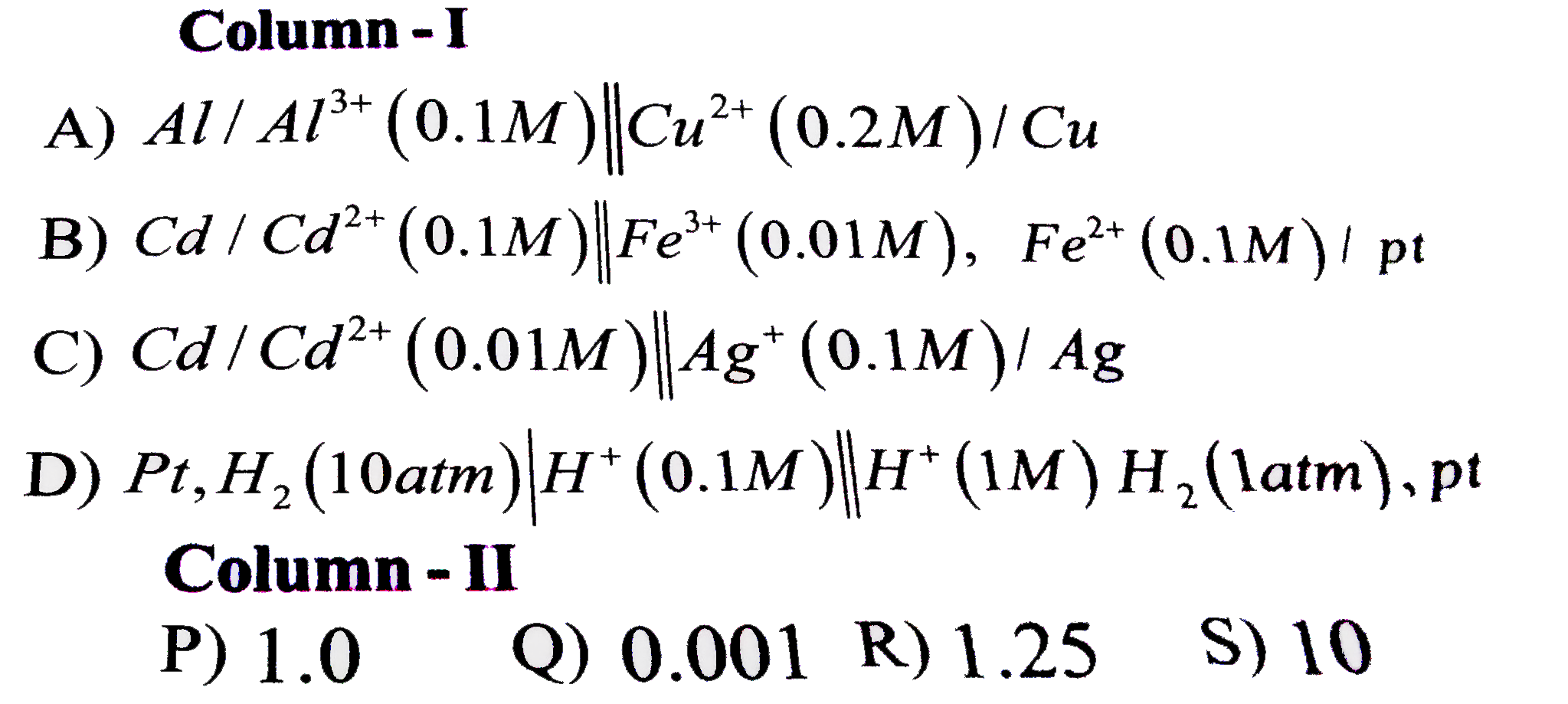In a galvanic cell, the salt bridge
(i) does not participate chemically in the cell reaction
(ii) stops the diffusion of ions from one electrolytes to another
(ii) is necessary for the occurrence of the cell reaction
(iv) ensures mixing of the two elecrolytic solutions
Does not participate chemically in the cell reaction
Stops the diffusion of ions from one electrode
is necessary for the occurrence of the cell reaction.
ensures mixing of the two electrolytic solution
The correct Answer is:A, B, D
Step by step video, text & image solution for In a galvanic cell, the salt bridge (i) does not participate chemically in the cell reaction (ii) stops the diffusion of ions from one electrolytes to another (ii) is necessary for the occurrence of the cell reaction (iv) ensures mixing of the two elecrolytic solutions by Chemistry experts to help you in doubts & scoring excellent marks in Class 12 exams.
Updated on:21/07/2023Topper's Solved these Questions
Similar Questions
Knowledge Check
Products of electrolysis depend on the nature of material being electrlysed and the type of electrodes being used. If the electrode is inert (e.g., platinum or gold), it does not participate in the chemical reaction and acts only as source or sink for electrons. On the other hand, if the electrode is reactive, it participates in the electrode reaction. thus, the products of electrolysis may be different for reactive and inert electrodes.
Aqueous copper sulphate solution and aqueous silver nitrate solution are electrolysed by 1 ampere current for 10 minutes in separate electrolytic cells.
In these question, a statement of assertion followed by a statement of reason. choose the correct answer out of the following choices.
Q. Assertion (A): In a galvanic cell, chemical energy is converted into electrical energy.
Reason (R): Redox reaction provide the chemical energy to the cell.AAssertion and Reason both are correct statements and reason is correct explanation for assertion.BAssertion and reason both are correct statements but reason is not correct explanation for assertion.CAssertion is correct statement butreason is wrong statement.DAssertion is wrong statement but reason is correct statement.Assertion : Mercury cell does not give steady potential.
Reason : In the cell reaction, ions are not involved in solution.ABoth assertion and reaction are true and the reason is correct explanation for assertionBBoth assertion and reason are true and reason is not correct explanation for assertionC) Assertion is true but the reason is False.DBoth assertion and reason are false.STATEMENT-1: The voltage of mercury cell remains constant for longer period of time.
STATEMENT-2: It is because net cell reaction does not involve ions.ABoth assertion and reason are true and the reason is the correct explanation of assertion.BBoth assertion and reason are true and reason is not the correct explanation of assertion.CAssertion is true but the reason is false.DBoth assertion and reason are false.
Write the cell reactions which occur in lead storage battery when (i) it is in use (ii) not in use.
View SolutionStatement - I. Salt bridge is used in Electro chemical cell.
Statement - II. The ions of the electrolyte used in salt bridge should have almost same ionic mobility
View SolutionStatement-1: Salt bridge maintains electrical neutrality in two half cells.
Statement-2: Salt bridge transfer ions of one solution into other solution.
View SolutionIdentify the correct order of steps in heterogeneous catalysis.
(i) Adsorption of reactant molecules on the surface of the catalyst.
(ii) Diffusion of reactant to the surface of the catalyst.
(iii) Formation of reactions product on the catalyst surface.
(iv) Diffusion of reactions product from the catalyst surface.
(v) Formation of activated intermediate.
View SolutionThe role of mitosis is not merely to divide a cell into two daughter cells but to ensure genetic continuity from one cell generation to another cell generation. The mechanism ensuring genetic continuity is
View Solution

